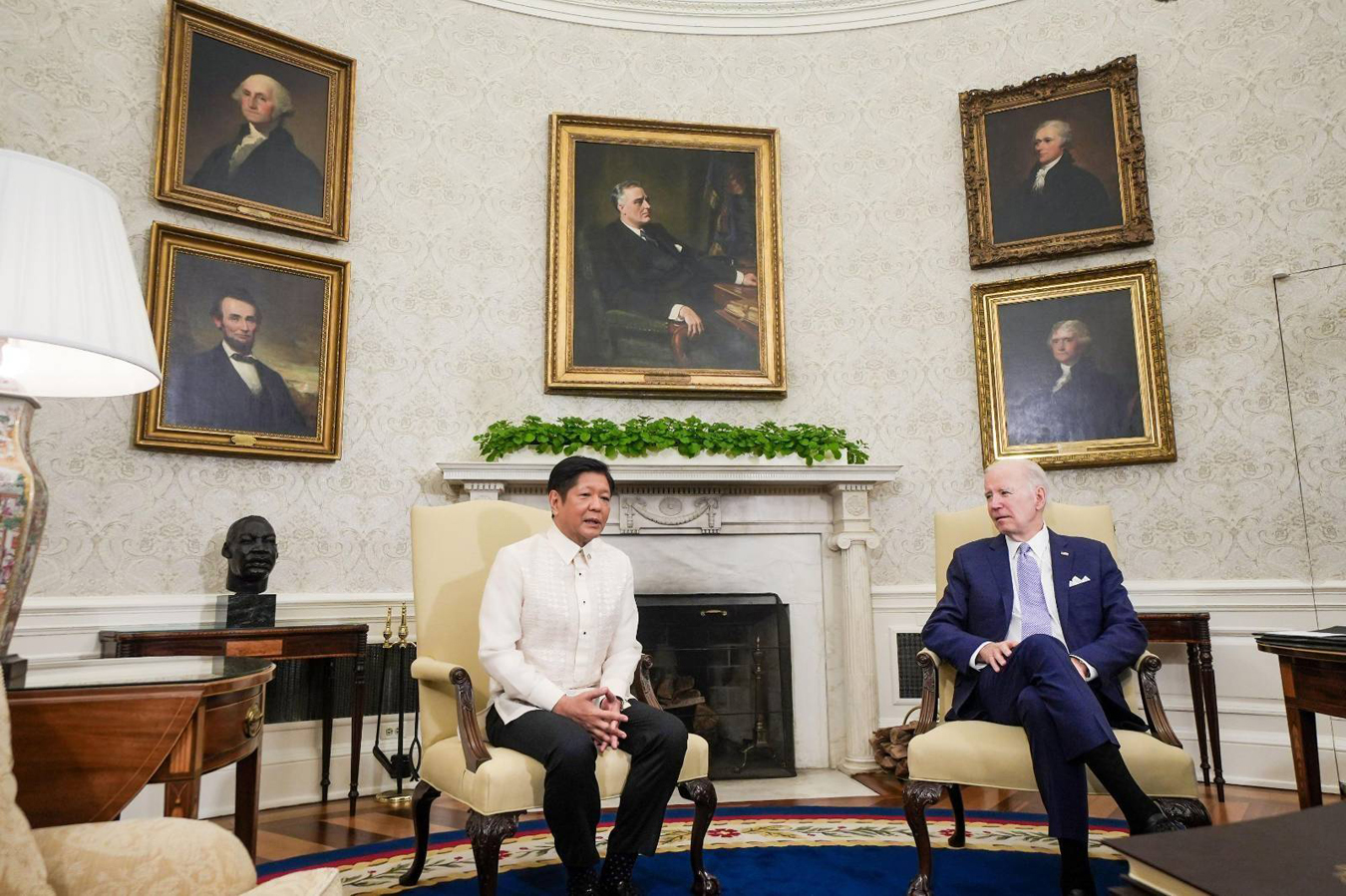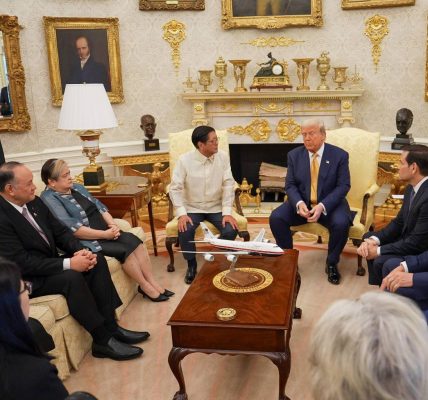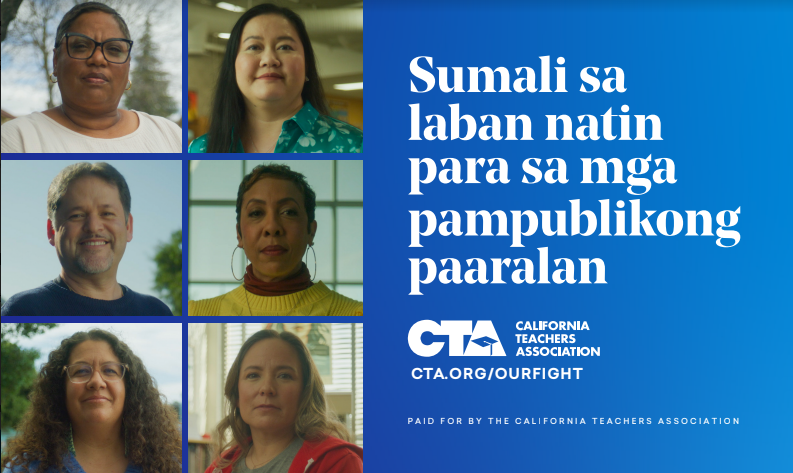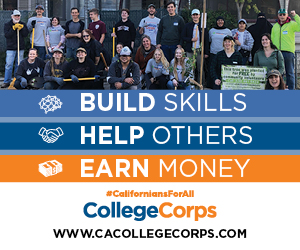By Cesar Antonio Nucum Jr.
LOS ANGELES — Three of the awardees of the James Irvine Foundation were honored by the Ethnic Media Services at a February 20, 2025 national briefing titled “The James Irvine Foundation 2025 Award Recipients: Trailblazing Leaders Honored for Effective Solutions to California’s Most Pressing Challenges.”
The three awardees the EMS invited for the briefing, all from California, are part of this year’s nonprofit leaders that were acknowledged by the foundation for transforming California’s future on matters concerning environmental justice to improving maternal health. These changemakers are advancing innovative solutions to the state’s toughest challenges, informing policymakers, and inspiring the next generation of leaders. Their organization will receive a $350,000 grant to accelerate their impactful work.
The James Irvine Foundation awards continually prove the premise that change can happen even with the most intractable problems, despite political polarization and economic uncertainty.
The awardees who talked about the particular issues their organizations address, their personal commitments to these issues and the unique solutions they are advancing for making change were Executive Director of Central California Environmental Justice Network Nayamin Martinez, Co-Director of Rou Dalagurr Food Sovereignty Lab & Traditional Ecological Knowledges Institute Cutcha Risling Baldy, PhD, and Hispanas Organized for Political Equity (HOPE) CEO Helen Iris Torres. They were joined in the briefing by The James Irvine Foundation Program Officer Cindy Downing who spoke about the full list of James Irvine Foundation Award recipients, the meaning and impact of the awards nominations for next year’s award recipients.
Nayamin Martinez introduced herself as a very proud Mexican immigrant living in Fresno, California for almost 25 years and has made her mission to help immigrant communities especially farm workers who come from Latin America whose second language or third language is English but oftentimes are ignored and discarded as unimportant.
As early into her new home here in the Valley, Nayamin started volunteering with an organization helping indigenous immigrants as a continuation of what she had started doing in Mexico.
“Some of the things that I learned from my parents was to help others by volunteering in helping refurbish houses of low-income people, by also knowing that social justice was something that I needed to be part of, and, while in college, I had the opportunity to go to other immigrant communities or indigenous communities helping them fight human rights violations, something as basic as that,” narrated Nayamin.
The other things that Nayamin took on as part of her tasks were helping immigrants access health healthcare, relocating over 40 families that were living near a supersized pond where Chevron had been poisoning their homes or the land where their mobile homes were settled their mobile homes.
“Working with immigrants has been my passion as I am an immigrant myself. And my entire family and friends are in Mexico so these immigrants that I met years ago became my family. It has become my personal goal and it’s also a lifestyle My husband, the reason why I came to California following him is also an immigrant advocate, another leader that is working to protect immigrants and it’s more than a job,” Nayamin explained.
Nayamin emphasized that the Central California Environmental Justice (CCEJ) is not only advocates for policy changes but is also working to provide short-term solutions to these environmental problems, provide free filters for communities that have water contamination, provide air purifiers to those affected by wildfire smoke and balancing that work that you need to do to remediate immediate needs while you work to achieve long-term solutions.
“The fear of deportations is causing people not being able to show up to work, decreasing their income, causing uncertainty of what to do when deported, what is going to happen as it is causing even economic impacts to the farmers that do not even have the right number of manpower now,” lamented Nayamin.
Dr. Baldy, for her part, felt very privileged to be born and raised in very far Northern California amongst the peoples in Hoopa, Yurok and Karuk, the three largest tribes in California, and are also the largest land holders in terms of tribal lands in California.
“I think one thing we like to tell people about is we are indigenous peoples who they call relatively late in contact. We did not have a massive influx of Westerners or settlers until 1849 with the gold rush that, unlike other parts of the United States or even California, we had a long period of time where we were still exercising and working through our cultural ways of doing things, our ways of living up until the mid until 1800s,” Baldy related.
Baldy continued that the other thing is many of them are still in their aboriginal territories and that they have never been removed, have unbroken connections to their knowledges and their lands and talked about their indigenous knowledge and indigenous science as being very, very old.
“Our knowledge is based on thousands of years of scientific experimentation so your work has basically placed Indigenous science. The indigenous sciences for the first time as a formal field of study in the academy,” Baldy expounded. “We are botanists. We are biologists, we are ecologists. We are people who understand long-term knowledge about what the world is has been, what it could be, and what we need to build for the future. When we look at Western conceptions of conservation or preservation or natural resource management, humans are often considered outside of nature.”
Dr. Baldy continued that their knowledge says humans are a part of nature and one of our jobs is that we need to think about in total how the ecosystem works together and that there is a need to build a world where everyone can breathe and everyone can drink the water and everyone has the things they need to feel good in this place.
Hispanas Organized for Political Equity (HOPE)’s Helen Torres admits that her passion was influenced greatly by her mother who raised her and a sister singlehandedly Puerto Rico to Detroit, Michigan, a monolingual Spanish speaker.
“I had a very serious heart disease growing up so she had to navigate a system public education system that did not provide for my sister to have a bilingual education in a healthcare system that was very unfriendly, difficult to navigate and against a society that, quite frankly discriminated and harassed her for being a single mother,” Torres revealed.
As a witness to Torres considered as the injustice of the world, the choice is to keep bearing witness or do something about it. And this gave way to her joining HOPE whose mission is to ensure economic and political parity for Latinas so that, collectively, “a society can be created that really elevates each of us and that we can meet our human potential.”
“That’s what motivates me to be an advocate. That’s what motivates me to be leading an organization like Hope that really fulfills my passion. It all is around leadership development and civic engagement. Those two things really do develop an economic prosperity agenda for all of us. If done correctly if you have done if you have a table which all leadership voices can be heard and amplified we can solve anything together,” Torres shared.
Foundation’s Cindy Downing acknowledges that overseeing the James Irvine Foundation leadership awards program echoes the themes around support and community sisterhood and the power of women leaning into their power and their agency.
“I started at the foundation in the operational side doing administrative work, learning as much as I could, taking any opportunity that was available, to get into doing to support programmatic work and then promote from within from executive assistant to a program associate to now overseeing the rewards program,” Downing stated. “And it was a journey and it takes a lot of support from institutionally and personally and mentorship from other colleagues internally and externally to get to these positions. And once we arrive in places of approximate power it’s our obligation, I think, I’ll pay that forward and continue that legacy of of lifting each other up.”
“This year, we’re also very proud to recognize Stacey Smith of the Annenberg Inclusion Initiative, Shantae Davies Balk of Black Wellness and Prosperity Center and Sky Patrick of the LA County Library, they are the other three recipients that have fill out these incredible all women cohort this year. And collectively these wonderful leaders are really addressing the significant challenges that the state faces of economic uncertainty, social inequities in a quest for a more inclusive future. We can feel like much like the times are quite daunting but, in this group, we see so much hope,” Downing waxed optimistic.
Downing also announced the streamlined process for nominations to make it easier for community members o all ethnic backgrounds to nominate and empower nominees to share their own stories using their own words.
Downing also reminded that a more detailed submission of nomination is by April 30th “when we hope will allow them to showcase their work and their impact in ways that are meaningful to them.”



















